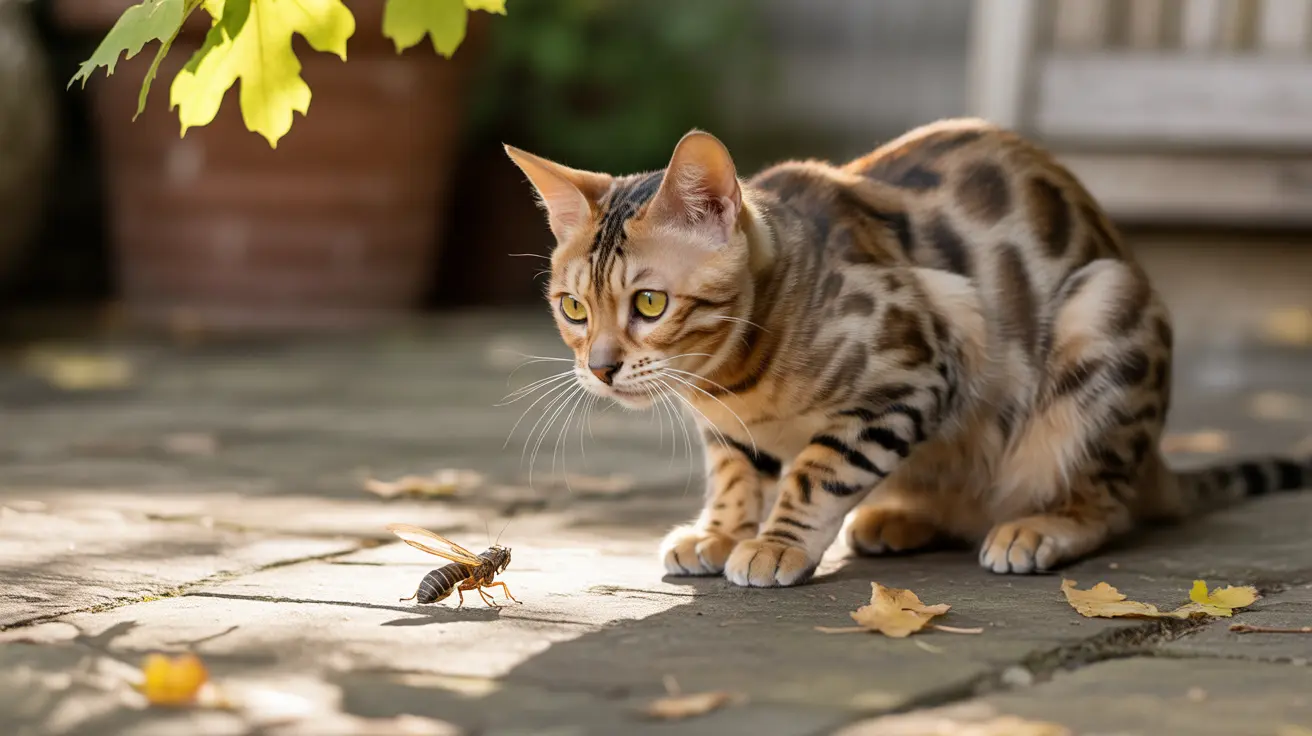As cicadas emerge in their periodic broods, many cat owners find themselves wondering about the safety of these buzzing insects when it comes to their curious felines. While cats are natural hunters and may be drawn to these slow-moving creatures, it's important to understand the potential risks and safety considerations of cicada consumption.
In this comprehensive guide, we'll explore everything you need to know about cats and cicadas, including safety concerns, potential health risks, and how to protect your feline friend during cicada season.
Are Cicadas Safe for Cats?
The good news is that cicadas themselves are not inherently toxic to cats. These insects don't carry venom, and they can't bite or sting your pet. However, this doesn't mean cats should be encouraged to feast on them freely.
While occasional consumption of a cicada or two typically won't harm your cat, there are several important considerations to keep in mind:
Potential Digestive Issues
The primary concern with cats eating cicadas comes from their hard exoskeletons, which can be difficult for cats to digest. These tough outer shells can cause:
- Gastrointestinal irritation
- Vomiting
- Diarrhea
- Temporary loss of appetite
- Abdominal discomfort
Health Risks and Warning Signs
While most cats won't experience severe problems from eating cicadas, there are certain situations that warrant closer attention:
Allergic Reactions
Though rare, some cats may experience allergic reactions to cicadas. Watch for symptoms such as:
- Swelling around the face or mouth
- Excessive drooling
- Difficulty breathing
- Itching or hives
- Unusual lethargy
Overconsumption Concerns
Cats that consume large quantities of cicadas are at higher risk for complications, including:
- Severe digestive upset
- Possible intestinal blockage
- Prolonged vomiting or diarrhea
- Dehydration
Prevention and Protection
To keep your cat safe during cicada season, consider implementing these preventive measures:
- Keep cats indoors during peak emergence periods
- Monitor outdoor activities closely
- Remove dead cicadas from your yard regularly
- Provide alternative entertainment and enrichment
- Consider setting up a protective outdoor enclosure
When to Contact Your Veterinarian
Seek immediate veterinary care if your cat shows any of these concerning symptoms after eating cicadas:
- Persistent vomiting or diarrhea
- Signs of allergic reaction
- Difficulty breathing
- Severe lethargy or weakness
- Prolonged loss of appetite
Frequently Asked Questions
Are cicadas toxic to cats?
No, cicadas are not toxic to cats. However, their hard exoskeletons can cause digestive issues if consumed in large quantities.
Can eating cicadas cause allergic reactions in cats?
Yes, while rare, some cats may experience allergic reactions to cicadas, manifesting as swelling, itching, or respiratory distress.
What are the signs of digestive upset in cats after eating cicadas?
Common signs include vomiting, diarrhea, loss of appetite, lethargy, and abdominal discomfort.
How can I protect my cat from eating too many cicadas?
Keep cats indoors during peak emergence, supervise outdoor time, remove dead cicadas from your yard, and provide alternative entertainment.
What should I do if my cat shows signs of distress after consuming a cicada?
Monitor your cat closely and contact your veterinarian if symptoms persist or worsen, especially if there are signs of allergic reaction or severe digestive upset.
While cicadas generally pose minimal risk to cats, being informed and vigilant during cicada season will help ensure your feline friend stays safe and healthy. Remember that prevention is always better than treatment, so take appropriate precautions when these noisy insects make their appearance in your area.






